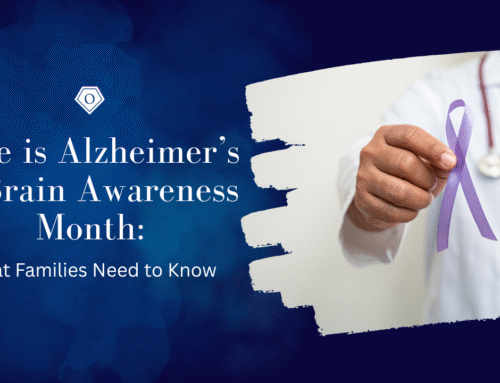Onyx Home Care is a proud member of the HCAF is the Home Care Association of Florida.
Below are emergency preparedness resources put together by HCAF. It is critical to start preparing for Hurricane Dorian, now! The storm has been upgraded to a category 3 or greater located somewhere along the Florida East Coast and will make landfall by late this weekend or early next week. Remember, seniors are especially vulnerable during a hurricane. You can view or download our Preparing Senior For Hurricane Booklet here.
We highly recommend downloading the app listed below to help assist you during this emergency situation.
State Resources
- Florida Evacuation Routes or download the FL511 mobile app
- Florida Watches, Warnings, and Advisories
- Florida Healthcare Coalitions Map
- Florida Division of Emergency Management
- Florida Emergency Information Line (FEIL): (800) 342-3557 – Operated by the Florida Division of Emergency Management, the FEIL is a toll-free hotline activated at the time of an emergency to provide an additional resource for those in Florida to receive accurate and up-to-date information regarding an emergency or disaster situation impacting the State of Florida
- Shelter Information by County
- Florida Special Needs Shelter Program
- County Emergency Management Offices and Contact Information
- Price Gouging Hotline – 866-966-7226
- Volunteer Florida
- Travel and Roadway Information
- Florida Voluntary Organizations Active in Disaster
- Community Emergency Response Team (CERT) – Operated by the Florida Division of Emergency Management; the new Citizen Corps and Community Emergency Response Team (CERT). Generally, CERT teams, as established under FEMA guidelines, fall under their sponsoring agency, which in most cases is the local emergency management division of the particular county
- Other Disaster Relief Organizations
- Jacksonville 2018 Emergency Preparedness Guide
Federal Resources
- National Oceanic and Atmospheric Administration (NOAA)
- Federal Emergency Management Administration (FEMA)
- FEMA Regional Office for Florida (IV)
- FEMA Individuals and Households Program (IHP) Fact Sheet
- FEMA Public Assistance (State, Local, Tribal, and Private Non-Profit)
- FEMA Social Hub – Updates from official emergency management social media accounts
- FEMA General Safety and Preparation Information
- FEMA Supply Checklist
- Federal Disaster Assistance
- Federal Register Final Rule for Emergency Preparedness
- Centers for Medicare and Medicaid Services (CMS) Declared Public Health Emergencies, All Hazards Health Issues, and Quality Issues
- Occupational Safety and Health Administration (OSHA) Flood Preparedness & Response
- CMS Medicare Fee-For-Services Emergency-Related Policies and Procedures That May Be Implemented Without §1135 Waivers
- ASPR Tracie Healthcare Emergency Prepardness Information Gateway
- Preparation By Storm Stages:
Disaster Response Support
- Healthcare Ready – 501c(3) non-profit disaster response organization dedicated to protecting patient access to medicines and health care during an emergency.
- Donation Coordination: Work with the private sector to route donations (medical and health related) to areas of greatest need (e.g., helped coordinate mobile pharmacies and mobile vision unit for shelters during Hurricane Harvey).
- Public-Private Information Sharing: Coordinate and liaise between Federal (FEMA, HHS, etc.) and local officials and private sector companies.
- Facilitate Access To Health Care Facilities: Coordinate with local authorities and law enforcement to ensure deliveries of critical health care supplies and personnel to impacted facilities and/or facilities treating survivors.
- Promote Medicine Assistance Program: Both advocate for activation of programs and share program information broadly within our network and impacted areas.
- Patient Assistance: Help patients find nearby open health care facilities, community health centers, pharmacies, or non-profit relief organizations that can provide them with the medicines or supplies they need (e.g., oxygen, wheelchairs, etc.)
- Contact Information: Private sector and patient requests for assistance or information may be sent to Healthcare Ready. The latest situation reports (Sit-Reps) are available online by clicking here and the site contains resources and additional detail on what we have been doing for Hurricane Harvey and what they are positioned to do for Hurricane Irma. Email alerts@healthcareready.org or call toll-free (866) 247-2694.
- National Voluntary Organizations Active in a Disaster
- Voluntary Organizations Active in a Disaster
Mobile Apps
- FEMA Mobile App
- FLGetAPlan (Google Play) (iTunes)
- Florida Storms (Google Play) (iTunes)
- GasBuddy – Find the cheapest gas prices near you
- Red Cross Mobile App
Emergency Preparedness Tools
- All Hazards Emergency Management Team (AHEMT) Emergency Management Plan
- Capacity-Building Toolkit for Including Aging & Disability Networks in Emergency Planning
- CDC Healthcare Preparedness Tools
- CMS Emergency Preparedness Final Rule
Crosswalk - CMS Voluntary Actionable After Action Report (AAR) Template and Instructions
- Comprehensive Emergency Management Plan (CEMP) Electronic Submission Form – Effective 1/2/19
- Comprehensive Emergency Management Plan (CEMP) Template
- CEMP Tabletop Exercise (.docx) NEW
- County Health Departments
- First Aid for People and Pets
- Florida Long Term Care Emergency Preparedness Portal
- Flu Preparedness Resources
- Helping Older Adults Weather the Storm Before, During, and After Disasters
- Home Care Agency Disaster Preparedness Checklist
- Home Use Devices: How to Prepare for Handle Power Outages for Medical Devices that Require Electricity
- National Weather Service Recommended Supplies Brochure
- Pandemic Emergency Management Toolkit
- Statewide Initiative Participation Form
Emergency Preparedness Tips
Flooding Concerns and Safety
- Never drive into flooded roadways. Half of all flood-related deaths are caused when people drive into flooded roadways. Check road conditions before driving.
- Avoid contact with floodwater. It may contain bacteria, hazardous chemicals and dangerous debris.
- Never eat foods that have touched flood water. Even canned goods could become contaminated. Drinking water may not be available or safe to drink. Learn more about food and water safety during floods.
Power Outages
- Statewide Power Outage Map
- Report power outages or call (800) 4-OUTAGE. To check power outages in your neighborhood, go to FPLMaps.com, where you can find the total outages in your area, the cause and estimates for when power will be restored.
- Do not run electrical generators inside your home. Carbon monoxide can build up and kill. Read more about generator safety.
- Listen for announcements about the safety of public drinking water. Follow “boil water” alerts that may be issued.
- If electricity has been off, refrigerated food may have spoiled. Discard any food that has been at room temperature for more than two hours or that has an unusual odor or color.
- Babies on formula should be given ready-to-feed formula or powdered formula prepared with bottled water.
- Learn more about food and water safety during power outages.
Medications
- Make sure medication profiles are up to date.
- Florida law allows pharmacists to dispense a 30-day supply in the areas or counties affected by an emergency order so long as the drug isn’t a Schedule II substance. Florida law also requires all health insurers, managed care organizations, and other entities licensed by the Office of Insurance Regulation to pay pharmacies for at least a 30-day supply of any prescription medication, regardless of the date upon which the prescription had most recently been filled.
- Rx Open provides a map detailing the operating status of pharmacies during a disaster. The map is completely free and publically accessible.
Clinical Record Protection
- Designate a staff person and a back up to be responsible for clinical records.
- Back up client and billing computer records regularly and ensure patient data and required office client data forms is saved to a CD Rom or a zip drive and stored in a secure off site location. Larger corporate home health agencies may have local area network server that utilizes a backup server. This information should also be saved to a CD Rom or zip drive.
- Store back up CD’s on site in insulated containers.
- Make hard copies of pertinent client file contents including the physician orders, assessment, plan of care or service provision plan and advance directives in a secure off site location.
- Provide a copy of the record items listed above to the client and/or the client’s caregiver to store in their home(s).
- Transfer special needs registry lists and required information to a disc that is stored in a secure off site location.
- Send updated discs and hard copy special needs registry lists to the county special needs department on a regular basis. Keep a copy on site in an insulated container.
- Scan record contents on a regular basis. Small scanners can be purchased relatively inexpensive. There are also Corporate Scanners available at reasonable prices. Check consumer reports for the scanner that meets your agency’s needs.
- Store copies of the scanned records in a secure off site location.
- Arrange for the evacuation of records to a designated backup facility if there is sufficient warning prior to the disaster.
Business Property Protection
- Raise computers above the flood level and move them away from large windows.
- Move heavy and fragile objects to low shelves.
- Move file cabinets to the interior of the business location.
- Purchase materials (plastic sheeting) to cover computers and file cabinets.
- Install fire sprinkler systems.
- Install fire-resistant materials and furnishings.
- Install storm shutters for all exterior windows and doors.
- Secure light fixtures and other items that could fall.
- Place Velcro strips under tabletop computers.
- Install curtains or blinds that can be drawn over windows.
Stress
- It’s normal to experience different and strong emotions during and after a disaster. Read more about common reactions to stress and tips for coping.
- Florida Disaster Behavioral Response Teams
- Disaster Distress Help Line – The Disaster Distress Helpline is a national hotline dedicated to providing year-round immediate crisis counseling for people who are experiencing emotional distress related to any natural or human-caused disaster.
- Call (800) 985-5990 or text TalkWithUs to 66746 to connect with a trained crisis counselor.






